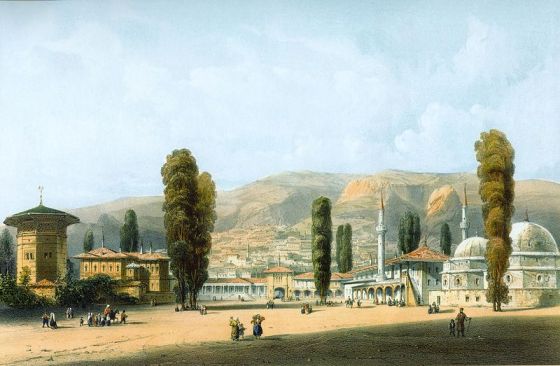‘I was told you were in the Crimea.’
Yashim blinked. ‘I found a ship. There was nothing to detain me.’
The seraskier cocked an eyebrow. ‘You failed there, then?’
Yashim leaned forwards. ‘We failed there many years ago, efendi. There is little that can be done.’ He held the seraskier’s gaze. ‘That little, I did. I worked fast. Then I came back.’
There was nothing else to be said. The Tartar khans of the the Crimea no longer ruled the southern steppe, like little brothers to the Ottoman state. Yashim had been shaken to see Russian Cossacks riding through Crimean villages, bearing guns. Disarmed, defeated, the Tartars drank, sitting about the doors of their huts and staring listlessly at the Cossacks while their women worked in the fields. The khan himself had fretted in exile, tormented by a dream of lost gold. He had sent others to recover it, before he heard about Yashim – Yashim the guardian, the lala. In spite of Yashim’s efforts, the gold remained a dream. Perhaps there was none.
At the beginning of The Janissary Tree, Yashim has just returned to Istanbul, telling himself that ‘anything was better than seeing out the winter in that shattered palace in the Crimea, surrounded by the ghosts of fearless riders, eaten away by the cold and gloom. He had needed to come home.’
One irony that won’t be lost on anyone following recent developments in the Crimea is that Catherine the Great stole the territory illegally in the first place. By the treaty of Küçük Kaynarca, signed between the Ottomans and the Russians in 1774, Crimea was to remain in Ottoman hands. Nine years later, the Russians seized it.



I’ve already pre-ordered your new book and look forward to its release. Yashim is a marvelous character.I have enjoyed my adventures with Yashim and have referred your books to a number of friends. Thank you.
Thank YOU, Rosemary!